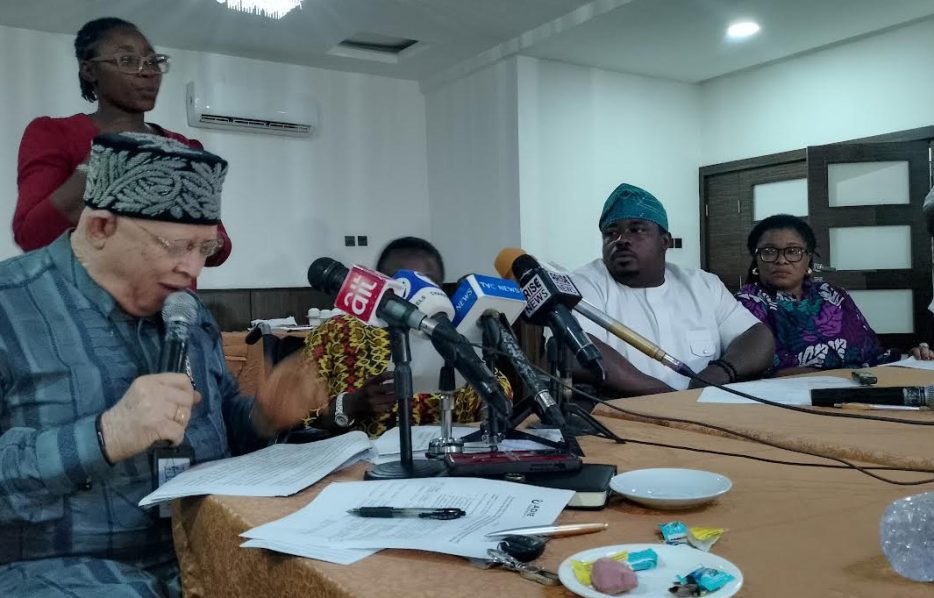 …As PLWDs insist on 5 percent employment quota in public, private sectors
…As PLWDs insist on 5 percent employment quota in public, private sectors
The Transition Monitoring Group (TMG) has decried the exclusion of no fewer than thirty five million Nigerians from the governance of the country.
TMG’s Chairman, Mr Auwal Musa Rafsanjani who bared his mind on the issue during the media briefing by members of the Accelerate Disability Inclusion in Emergencies (ADIE) forum held in Abuja argued that the development was in breach of laid down rules and regulations.
Rafsanjani remarked that the plight of PLWDs that dared to participate in the electioneering process was worsened as they could not cope with the appalling level of thuggery and money politics in the country.
Lamenting the non availability of facilities for PLWDs in public places, he wondered why the government chose to exclude them from participating in the negotiations over palliatives required to cushion the effects of fuel subsidy removal on vulnerable Nigerians.
The rights activist called on President Bola Ahmed Tinubu to correct the anomaly by carrying along PLWDs in the decision making process in ministries, departments and agencies (MDAs).
ADIE at the briefing jointly addressed by Chieftain Agbo, Grace Jerry, Jake Ekpelle, and Lois Auta called on the authorities to ensure the full implementation of the Discrimination Against Persons with Disabilities (Prohibition) Act, particularly the 5 percent employment quota for PWDs and incentivize private and public sector employers to implement workforce inclusion initiatives for persons with disabilities like work-from-home options, flexible schedules and accessible workplaces.
They also called on the federal, state, and local governments should introduce an affordable public transportation system that is accessible to Persons with Disabilities (PWDs) beginning in September 2023.
They noted: “This program should provide discounted or free transportation vouchers, passes, or dedicated transportation services to ensure affordable and accessible transportation options for PWDs.
” Accessible transportation should include buses with adjustable ramps and handrails for wheelchair users, signage and electronic display for directions with audio announcements for the benefit of the deaf and the blind.”
They also called on the federal and state governments to initiate a stand-alone social protection intervention for persons with disabilities (PWDs), including establishing reliable databases of PWDs, food banks for an equitable distribution of economic palliatives to PWDs, and targeted financial assistance.






